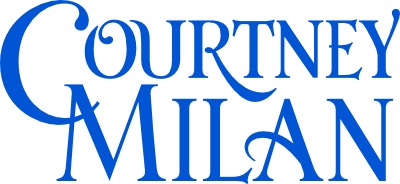The main argument I’ve heard for the FTC guidelines so far is this: “It’s just disclosure. How hard is it to disclose where you receive a book? Just paste something on your sidebar and you will be okay.â€Â I am a strong believer in openness and transparency. I also believe in disclosure—if you will note, when I talk about books, I have always tried to work my relationship with the person into the conversation. But although I think that disclosure is generally a good idea, I think there are clear instances where whatever value we might gain as a society from disclosure is swamped by the negative aspects of that disclosure.
So let me tell you what I mean by this. I’m going to start with a person who doesn’t exist—at least, she doesn’t exist precisely as I describe her.
But imagine there’s an anonymous book blogger who calls herself Ms. Revels. Ms. Revels reviews young adult books with a mission: She wants to highlight books that are fun and entertaining for young adults, while still being clean enough for the parents. Ms. Revels’ reviews range the gamut. She glows about Ally Carter’s DON’T JUDGE A GIRL BY HER COVER, because of its proactive, positive message. She completely trashes Suzanne Collins’s THE HUNGER GAMES because of its violence. She gives a so-so to Scott Westerfeld’s UGLIES, because while it is violent and scary, she thinks the message about being comfortable with your own body is important for teenagers to hear.
Ms. Revels, however, has a secret. She is also a young adult author. She does not review her own books; she considers that ethically suspect (and she is trying not to be suspect). But she receives regular checks from Simon & Schuster and Random House (she has written for both over time), is friendly with editors from all the major houses, and as a fairly prominent author herself, she regularly receives ARCs and manuscript copies for her blurb (or, just in case she reads it and maybe likes it). The vast majority of her reviews come from these free copies.
Ms. Revels has not disclosed that on her site. She has not done it for one very simple reason: She has lambasted books that her own editor worked on. She has called “dangerous†books that people who are her friends have written.
She does so, because she firmly believes that teens should be taught that “clean†activities can be fun. Now, you may not agree with Ms. Revels’s philosophy. You may not like her. But that’s the burden of the First Amendment: we let people speak, even if we think what they are saying is a load of crock.
The requirement of disclosure would sink Ms. Revels. In order to meet the FTC’s disclosure requirements, she would have to issue a statement that she had written books for Simon & Schuster and Random House, and that she receives ARCs from all major houses. And that disclosure would be tantamount to a revelation of identity, because there aren’t many people who would fit that bill.
There is some value to the consumer in having that information about Ms. Revels. But Ms. Revels’s speech is entirely burdened by the FTC’s disclosure requirements: She must either provide information that divulges her identity, or quit speaking altogether.
For people outside the U.S., it’s hard to understand why anonymous/pseudonymous speech is given such a privileged place in our system of laws. It is, however, a large part of our culture. A major event in the Revolutionary war involved anonymous persons dumping tea in Boston Harbor. Advocates for the Constitution wrote “the Federalist Papers†under the pseudonym “Publius.â€Â In more recent history, the Supreme Court held in 1958 that members of the NAACP had a First Amendment right to keep its membership rolls private, because members of the NAACP, if disclosed, might be subjected to abuse, ranging from lynching to burning crosses.
Under the First Amendment, we protect people who voice unpopular opinions from disclosing their identity. We think the opinions they have to share are more important than the value the public gets from the disclosure. And it is this that makes me quail from the FTC guidelines: The disclosure the FTC seeks, in some cases, requires a person to leave a trail of informational breadcrumbs leading to her identity, as a precondition for engaging in speech that is both politically and culturally valuable.
Let me give a somewhat less abstract example:Â Moonrat.
Moonrat talks about books on her blog. She is in publishing, so presumably, she gets many of these books for free. More importantly, if she ever discussed a book produced by her house or one of its subsidiaries, she would have to disclose her interest, and that means she would have to disclose her house. If she discussed a book produced by a friend of hers, who bought her coffee, she would have to disclose that. And that means, of course, that if she talked about books at all, she would have to divulge information that would make her identity a foregone conclusion.
Moonrat is anonymous, and we all know why: Because if she were not, she would be deluged with people telling her to buy their novel. Also, her authors would tear their hair out, and people would take all her rejections personally. Moonrat nonetheless provides a very valuable service, and I would be sorry to see her go away, or to discover that Moonrat might not be able to talk about books.
The book publishing industry is small, intimate, and interconnected. Sometimes, the only way for insiders to speak harsh truths about books is under the veil of pseudonymity.


